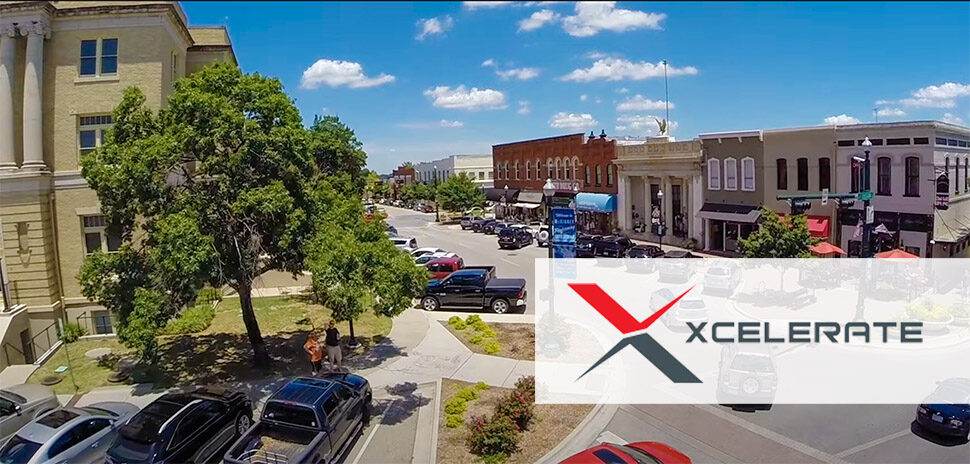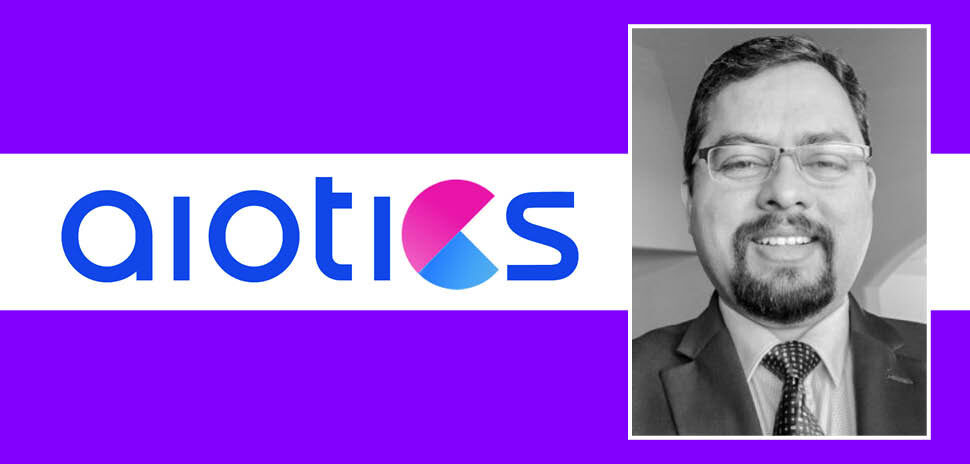The McKinney Economic Development Corporation’s (MEDC) Innovation Fund has landed its latest grant company in Spatial Laser, a proptech startup that uses analytics to discover the best places to purchase single-family homes.
Since its founding last year, the MEDC has been landing tech startups at warp speed, with all recipients using capital from the Innovation Fund to scale or relocate in McKinney.
Spatial Laser is joining the McKinney migration, moving its headquarters from Plano to 300 E. Davis Street within Dallas-based coworking company Common Desk’s space near the Downtown Historic Square.
“McKinney is a fast-growing area that is looking to grow its high-tech industry,” Co-Founder and CEO Steven McCord told Dallas Innovates. “The area is also densely populated with skilled high-technology workers who have rich experience in software development and other aspects of information technology.”
Simplifying the process of finding properties to invest in
Co-founded by McCord in October 2019, Spatial Laser aims to simplify the process of finding properties to invest in.
It’s not a real estate agent; it’s not a data company. The goal, according to McCord, is to help professional real estate buyers in finding the right properties as efficiently as possible, using data to calculate hyper-local market conditions and risks.
“We instantly evaluate opportunities at scale, on our acquisitions platform,” McCord, a commercial real estate veteran, told Dallas Innovates. “We also help owners of real estate monitor market conditions in order to manage their portfolios.”
A ‘Bloomberg Terminal’ for real estate
The startup uncovers prime locations for single-family-home investors that will offer high rental returns with a low risk. It does so through its flagship product: Locate Alpha, a cloud solution that pools a variety of analytics on residential properties to determine if the site is a solid investment.
McCord likens it to a “Bloomberg Terminal for real estate.”
The Bloomberg Terminal—lauded as an icon of financial services—is a computer system from Bloomberg L.P. that provides market decisionmakers with news, data, analytics, trading tools, and more.
Similar to the Terminal’s reputation of bringing real-time, unparalleled transparency to finance in one place, Spatial Laser hopes Locate Alpha will assist bulk buyers in quickly identifying real estate properties that meet their pre-saved criteria.
Then the buyers will be able to make offers with just a few clicks.
Locate Alpha’s goal is simplification for the end-user. The platform handles the complexities that accompany searching for properties, taking into account demand factors, changing neighborhood dynamics, industries, gentrification, access to jobs, and both historical and fast-moving indicators of market performance.
‘Bringing the analytical rigor of CRE to the residential world’
The research platform doesn’t use “the same old public data,” McCord says, but rather an amalgamation of curated KPIs, fine-grained block-level detail, and an early warning system for neighborhoods getting better (or worse).
“We’re helping bring the analytical rigor seen in the commercial world to the residential world,” McCord says. “Bulk buyers of single family rental units are deploying capital and need automated location underwriting in order to buy thousands of houses in a short period of time.”
McCord says Locate Alpha’s processes are proprietary in the way it uses location data in various forms. The data is cleaned up and combined for two main outcomes: generate beautiful, color-coded maps and bind indicators to any address of any house.
The company has plans to file patents in the near future.
What’s next
To date, McCord and his three-person team have raised $280K in funding, which has been used for the development and release of Locate Alpha. They currently license the software to enterprise users to generate revenue, while also charging according to the volume of usage in the system.

Steven McCord
McCord says they’re “still small, but growing.” He plans to make several additional hires next year.
According to the co-founder, single family rental units across the U.S. are being rapidly purchased by large investment funds. It’s a $1.5 billion opportunity for Spatial Laser—especially as the market moves from around 2 percent institutionally owned to a potential level of 20 percent level in the coming years.
McCord sees that as an opportunity to earn various service fees in the process of identifying and vetting opportunities for their viability.
“Success for us looks like this: 1) on-boarding more large-scale buyers of real estate to use our system and 2) deepening our coverage across more cities,” McCord says.
The startup’s generation hails from the CEO’s own experience in buying single family home rentals in the U.S. while simultaneously working at JLL as a research director in Asia.
McCord and his co-founder worked closely with Issi Romem, a Bay Area-based former chief economist at Zillow, who provided guidance when launching the business. Spatial Laser also has local real estate partners: Yanlin Qian at KW Southlake and Jay Fang and Shawn Xu of U Property Management.
The SaaS company now plans to grasp significant market share as Locate Alpha matures.
“When we first demoed Locate Alpha we were blown away by the detail provided and easy to navigate UX. It was a no brainer for us to partner with such talented individuals,” MEDC Director of Technology & Research, Mike DePaola said in a statement. “There is a huge market for residential real estate investment analytics as shown on Bigger Pockets and real estate sub-reddit forums, with over 1.8 million active accounts seeking more in-depth analysis and detail than ever before.”
The Innovation Fund continues to boost tech in McKinney
The MEDC Innovation Fund was designed with companies like Spatial Laser in mind. The initiative aims to spur and accelerate the growth of innovation-focused companies in the area during the timeliest need of their life cycle.
We previously told you about:
• Blockit, a healthcare SaaS company;
• EnginSoft, an engineering company in the field of computer-aided engineering (CAE);
• CourMed, a crowdsourced healthcare delivery platform;
• MyTelemedicine, a virtual platform that provides the healthcare industry with technology and an extensive API suite;
• Invene, a healthcare software development startup that was based in UTD’s Venture Development Center;
• Aiotics, an AI startup that makes scalable, easy-to-use solutions;
• Falkon Technologies, a custom software development company;
• Alanna.ai, an SaaS startup that aims to simplify land and title transactions;
• Robin Autopilot, a robot tech company; and
• Xcelerate, a sustainable transportation company.
In total, the MEDC has completed 21 relocations or expansions.
![]()
Get on the list.
Dallas Innovates, every day.
Sign up to keep your eye on what’s new and next in Dallas-Fort Worth, every day.


































































